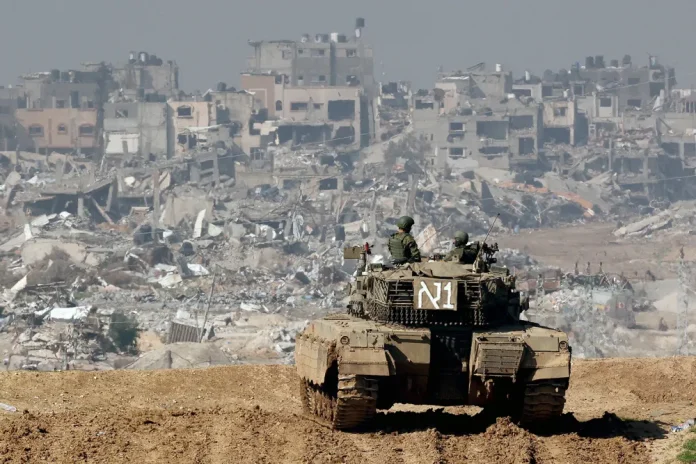Israel achieved all it could in Gaza militarily, senior US officials said. Meanwhile, the US claims that a new round of talks in Doha, Qatar, on a ceasefire and hostage release agreement in Gaza has commenced with a “promising start.”
As the Biden administration seeks to restart cease-fire talks, a growing number of national security officials in the government say the Israeli military has seriously set back Hamas but will never be able to completely destroy the group, according to The New York Times.
Israeli forces could now move freely throughout Gaza, with Hamas bloodied and damaged, the officials noted. The Israeli military also claimed to have eliminated half the leadership of the Qassam Brigades, the military wing of Hamas, including the top leaders Muhammad Deif and Marwan Issa.
Over the past 10 months, “Israel has been able to disrupt Hamas, kill a number of their leaders and largely reduce the threat to Israel that existed before 7 October,” General Joseph L. Votel, former head of US Central Command, said. However, he emphasised that the release of the hostages could only be secured through negotiations.
Lieutenant Colonel Nadav Shoshani, a spokesman for the Israel Defence Forces (IDF), said in a telephone interview that “the IDF and its commanders are committed to achieving the goals of the war to dismantle Hamas and bring home our hostages, and will continue to operate with determination to achieve them.”
However, Yaakov Amidror, a retired Major General who served as national security adviser to Israeli Prime Minister Benjamin Netanyahu, rejected the idea that Israel had nothing more to gain in Gaza.
Israel’s achievements in Gaza are impressive, but they’re far from what should be achieved. If Israel evacuates its forces now, within a year, Hamas will be strong again.
Ceasefire talks
William J. Burns, the CIA director, arrives in Qatar on Thursday. Brett McGurk, US President Joe Biden’s Middle East coordinator, also travelled to Egypt and Qatar. Amos Hochstein, a senior White House adviser, has landed in Lebanon. They are expected to declare that there is little more Israel can do against Hamas.
The agreement is seen as key to ending the 10-month conflict, which is escalating into a full-scale regional war involving Iran, according to the BBC.
Hamas stated it would not yet participate in indirect talks in Doha, although mediators were said to be passing messages to officials of the armed group based there. It called for a roadmap based on the proposal outlined by the US president and accused Israel’s prime minister of adding new conditions, which he denied.
Mediators face a number of potential obstacles, including control of land along Gaza’s border with Egypt and the return of displaced Palestinian civilians to northern Gaza.
The talks were suspended after Hamas political leader and chief negotiator Ismail Haniyeh was assassinated in Tehran in late July. Iran vowed to retaliate against Israel, which neither confirmed nor denied its involvement. The incident has raised concerns of a wider escalation.
Gaza’s health ministry reported on Thursday that at least 40,000 people had been killed in Gaza since then, which the UN human rights chief called a “grim milestone for the world.”
Negotiation details
The Israeli delegation to the Doha talks reportedly included the directors of its Mossad foreign intelligence agency and Shin Bet domestic security service, David Barnier and Ronen Bar, as well as the Israeli military’s hostages chief, Nitzan Alon.
They were joined by Burns of the CIA, Qatari Prime Minister Mohammed bin Abdul Rahman Al Thani, and Egyptian intelligence chief Abbas Kamel.
After discussions began on Thursday, White House National Security Council spokesman John Kirby told reporters the talks were likely to continue on Friday due to the agreement’s complexity.
We’re at a point where it’s generally accepted. Where the gaps are in the execution of the deal, the individual muscle-movements that go with putting the deal in place. The remaining obstacles can be overcome, and we must bring this process to a close.
The first phase of the proposed deal would include a “full and complete ceasefire” for six weeks, the withdrawal of Israeli troops from all Gaza population centres, and the exchange of some hostages for Palestinian prisoners held in Israel.
The second phase would include the release of all remaining living hostages and a “permanent end to hostilities.” The third would mean the beginning of a massive reconstruction plan for Gaza and the return of the remains of the dead hostages.
